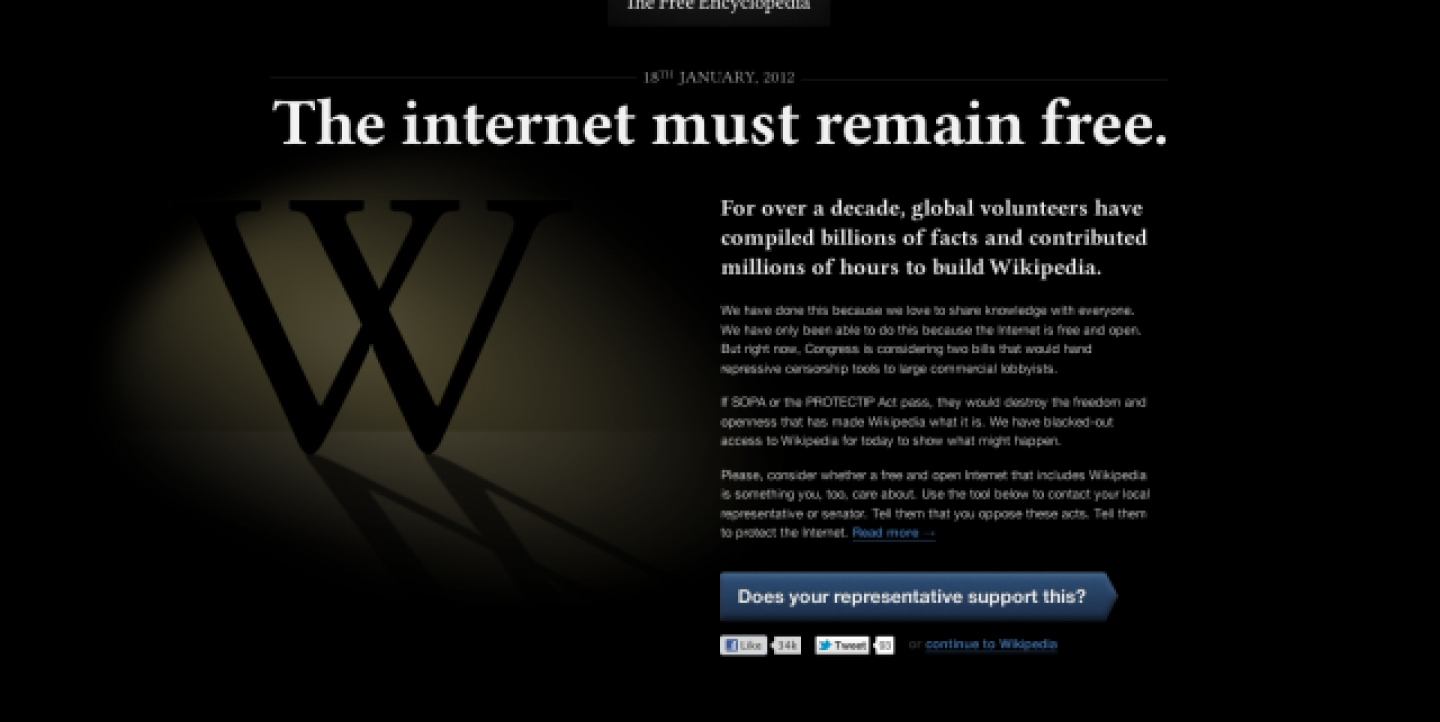With Wikipedia gone dark and a black band around Google, organizations are protesting U.S legislation designed to protect copyright and trademark holders.
While their acronyms sound like characters in a children's book, SOPA (Stop Online Piracy Act) and PIPA (Protect Intellectual Property Act) mean business.
They are backed by Hollywood to protect against "rogue sites," defined by the Motion Picture Association of America as "stolen movies, TV shows and music or even counterfeit prescription medications and other goods." The backers claim that online piracy leads to massive job loss, but those figures have been contested.
Protests are underway January 18 around the world online - and in the form of demonstrations across the U.S. - because the far reach of these bills could mean a choke-hold on freedom of expression.
Here are a few scenarios that could affect bloggers if they pass:
- Post something claimed to be in violation of the law and your site goes down.
This seems straightforward, but let's say you buy the rights to a photo or find it marked with a Creative Commons license on a site like Flickr. But whoever sold it or posted it was not the copyright holder. You've violated the law without knowing it and the legislation would pull your site first ("as expeditiously as possible" as per section 102 of SOPA) and ask questions later.
- Post something claimed to be in violation of the law and you face extradition to the U.S. and a prison sentence.
This is the nightmarish scenario facing a 23-year-old British citizen for a site called TVShack.net, whose site was found violating the UK Copyright, Designs and Patents Act of 1988. According to Computer World, the judge held that Richard O'Dwyer's site, which consisted purely of links pointing to other sites holding copies of content, some of which were unauthorized, infringed the law with those links.
- Someone else posts something that violates the law on your site, and you face either the site going dark or extradition.
The worst case scenario: anyone who wants to see your site down or create trouble for you simply posts links to torrent files or clearly copyrighted photos in the comments or forum section of your site, then alerts the lawyers. You could find your site taken down or face charges for something you didn't even post.
_You can read the full text of the proposed bills PIPA and SOPA on Wikipedia. For more information on protests, online and off, see American Censorship.org. The White House blog has also responded to online petitions and commented on the bills._

